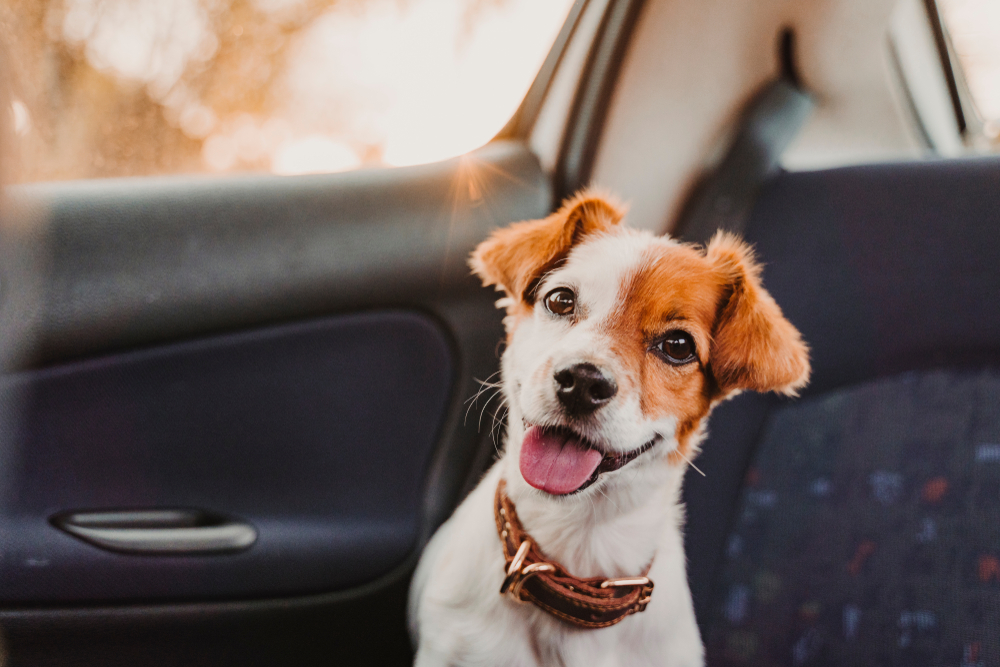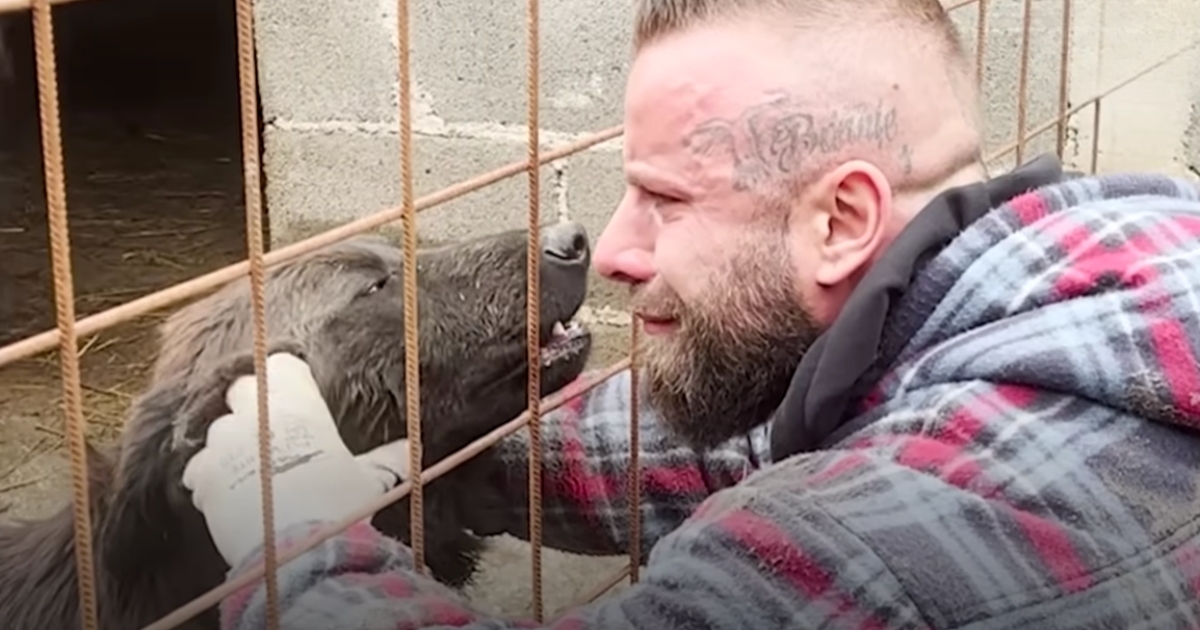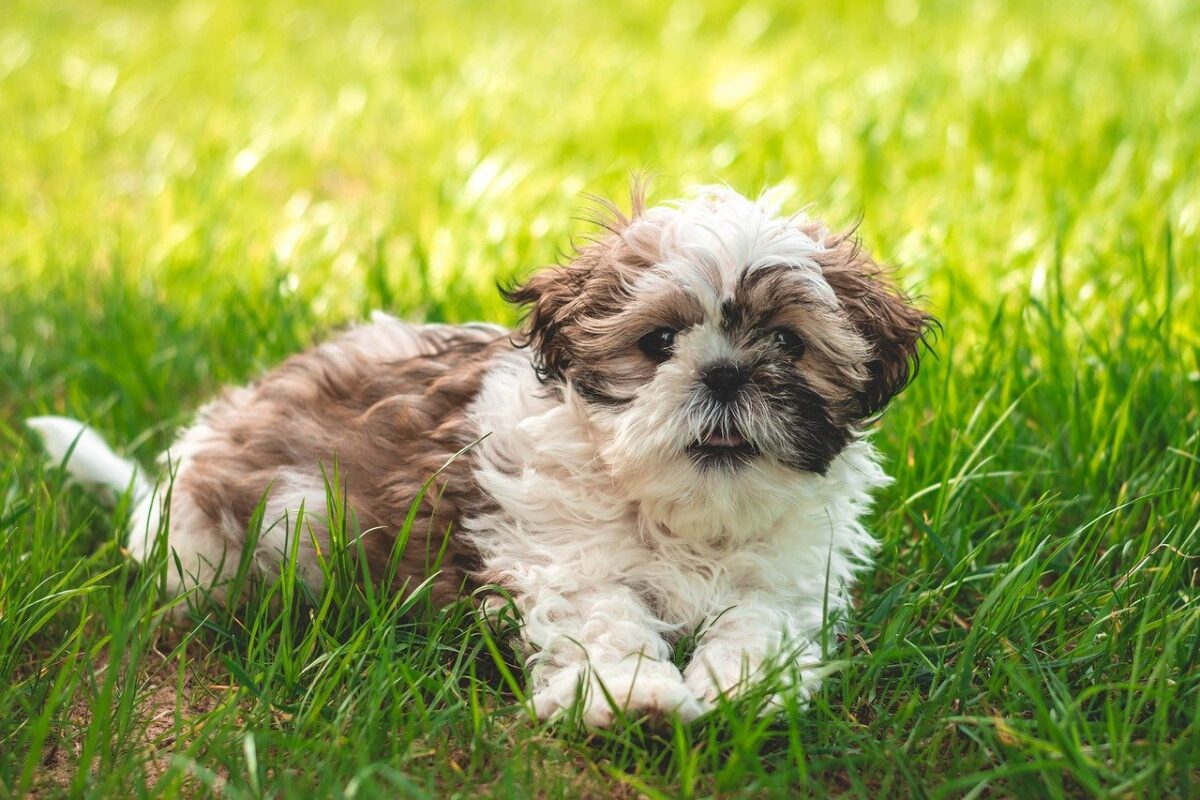
The information is current and up-to-date in accordance with the latest veterinarian research.
Learn more »
Does your canine companion love to go on car rides? Many dogs are big fans of riding in the car, which makes sense, considering they get to go on an adventure and possibly even stick their head out the window to get wind in their face. But have you ever had your pup in the car and noticed that they kept panting?
What causes panting in the car? Why do dogs do that? We’re here with the top five reasons dogs pant in the car, plus info on how you may be able to keep your pet from panting so much on long rides. We’ll also let you know when the panting in the car might be cause for concern, so keep reading!
The 5 Reasons Dogs Pant in the Car
Here are the most common reasons for canines to pant in the car. Figuring out which one applies to your pet can help get them panting less often.
1. They’re Hot
The most obvious reason a dog is panting in the car is because they’re hot! Dogs don’t sweat the way we do, so they pant to cool themselves down when they become overheated. Cars can get rather hot, especially in the summer, so even if you have the windows rolled down for a breeze or the air conditioner going, it may not be enough to cool your pup down.
If your dog is panting, try turning the air up to cool the car down. Hopefully, that will cool your pet down, too, and the panting will stop.
Image Credit: Andrey_Popov, Shutterstock
2. Anxiety
Is your dog one of those canines who doesn’t enjoy car rides very much? For some pups, car rides are a source of stress rather than fun, which causes them to become incredibly anxious whenever they’re strapped into a vehicle. And if a dog is anxious, they could start panting. Other signs your pup is suffering from anxiety in the back seat include vocalization (whines and whimpers), excessive yawning, and licking the lips.
If you have a dog who suffers from anxiety in the car, it may be challenging to get them to stop being so anxious. One excellent way to try, though, is by starting to associate car rides with positive things. Give your pup a treat once they get into the car, make sure their seating area is comfy, and don’t only use the car to take them to the vet. Always ending up at the vet after a car ride is a sure anxiety-inducer!
3. Excitement
Conversely, rather than having an anxious canine on your hands, you might simply have an overly excited dog in the car. Dogs can begin panting when they get really excited about something (though this tends to hold truer for puppies than adult dogs), so your pup may just be eager to hit the road for an adventure. Once they calm down a bit, the panting will hopefully calm, too.
4. Motion Sickness
Canines can experience motion sickness just like us, and one of the signs of this is excessive panting. New stimuli can be overwhelming for pups, and the movement of the car can be unfamiliar; the combination of these things can result in a dog who is uncomfortable and nauseous. If your dog is getting car sick, you’ll likely also notice them drooling a lot, too. The panting is a sign that they may throw up soon, so be aware of that and be prepared to do some clean-up if it happens.
If you know your pup experiences motion sickness, talk with your vet about whether there’s anything you can give them to help them to be less nauseous on car rides.
Image Credit: knelson20, Shutterstock
5. They’re Thirsty
If you and your four-legged friend are taking a long car ride on a hot day, then your pet can become overheated, as we mentioned above. Being hot can also lead to them becoming thirsty or dehydrated, which can cause panting. Be sure to keep some fresh water in your car, along with something your pup can drink out of to avoid this!
When Should I Be Concerned About My Dog Panting in the Car?
Dogs panting in cars is perfectly normal and can happen for a variety of reasons, as you’ve seen. However, if your dog is showing signs of distress or acting as if they’re uncomfortable along with the panting, there could be cause for concern. If you see your dog drooling excessively or licking at their lips often, it could be a sign that they’re feeling unwell and might throw up. It could also mean they’re anxious about the car ride or getting dehydrated.
Keep a close eye on your dog’s body language while you’re in the car with them to help determine if you need to pull over to give them a break so they don’t throw up or offer them water.
Image Credit: Andrey_Popov, Shutterstock
How Can I Keep My Dog From Panting in the Car?
You may be wondering if there are ways to keep your pup from panting so much in the car, and there are definitely some things you can do. However, you may not be able to keep your dog from panting in the car entirely; panting is just something our canine pals do.
Training
If your pet gets overly anxious on car rides, you can try to help them overcome their fear of vehicles with training. If you’ve not done it before, start by letting your dog get in the car on their own while the vehicle is parked and let them explore it all. Give them praise and treats while they do so!
Next, you want to associate the car with positive things rather than just an object used to get them to the vet, so take them on short drives. Go around the block to begin, then work up to a trip to the dog park. Be sure to reward your pet when they stay calm. Finally, make sure your dog’s seat in the car is cozy and comfortable; an uncomfortable seat won’t help with anxiety and stress.
Keep the Car at a Comfortable Temperature
Keeping your car at a comfortable temperature during your drive will go a long way toward keeping your pup from becoming overheated and dehydrated. So, if you’re going out on a hot day, make sure the air is on, and your dog is getting enough airflow wherever they’re sitting. You can also keep cooling products for canines in the car, like cooling mats, so your furry friend is kept as comfortable as possible. Never leave your dog in a parked car, as the temperatures can quickly spike to dangerous highs, putting your pup at risk of heatstroke.
Take Water Breaks
Because a dog could become thirsty in the car, especially on hot days or during long trips, stopping for water breaks is essential. Pull over at rest stops to give your pup some water (please don’t try to give them water while still driving!). This will also let them have a break from the car, as you can let them have a quick walk around the rest stop.
Image Credit: Bobex-73, Shutterstock
Try Calming Products
If you think your dog is experiencing some anxiety related to car rides, there are a few calming products available over the counter. These products generally don’t work for severe phobias, however, some are scientifically backed to provide some calming effects. Adaptil Travel Calming Spray for Dogs mimics the pheromones produced by a mother dog and can be sprayed in the car, lasting for 4-5 hours. Greenies Calming Chicken Flavored Soft Chew Calming Supplement for Dogs contains L-tryptophan and L-theanine which are amino acids with calming effects on the brain.
Talk With Your Vet
If you know your dog gets car sick, speak with your vet, as there may be medication available they can take before trips so they don’t become nauseous or stressed. Also, talk with your dog’s veterinarian if they continue to pant excessively in the car, and none of the causes above seem to be why. There could be some underlying health issue that’s causing them to do so.
Conclusion
Dogs pant in cars for a variety of reasons, such as excitement, sickness, thirst, and more. If you can decipher why your pet is panting in the car, you can take steps to ensure their comfort so the panting is reduced or goes away entirely. Even if you aren’t able to figure out the exact cause, you can still take steps to make your pup more comfortable on car rides. Trips with your pup should be fun, so make them as safe and comfy as possible!
Featured Image Credit: eva_blanco, Shutterstock






